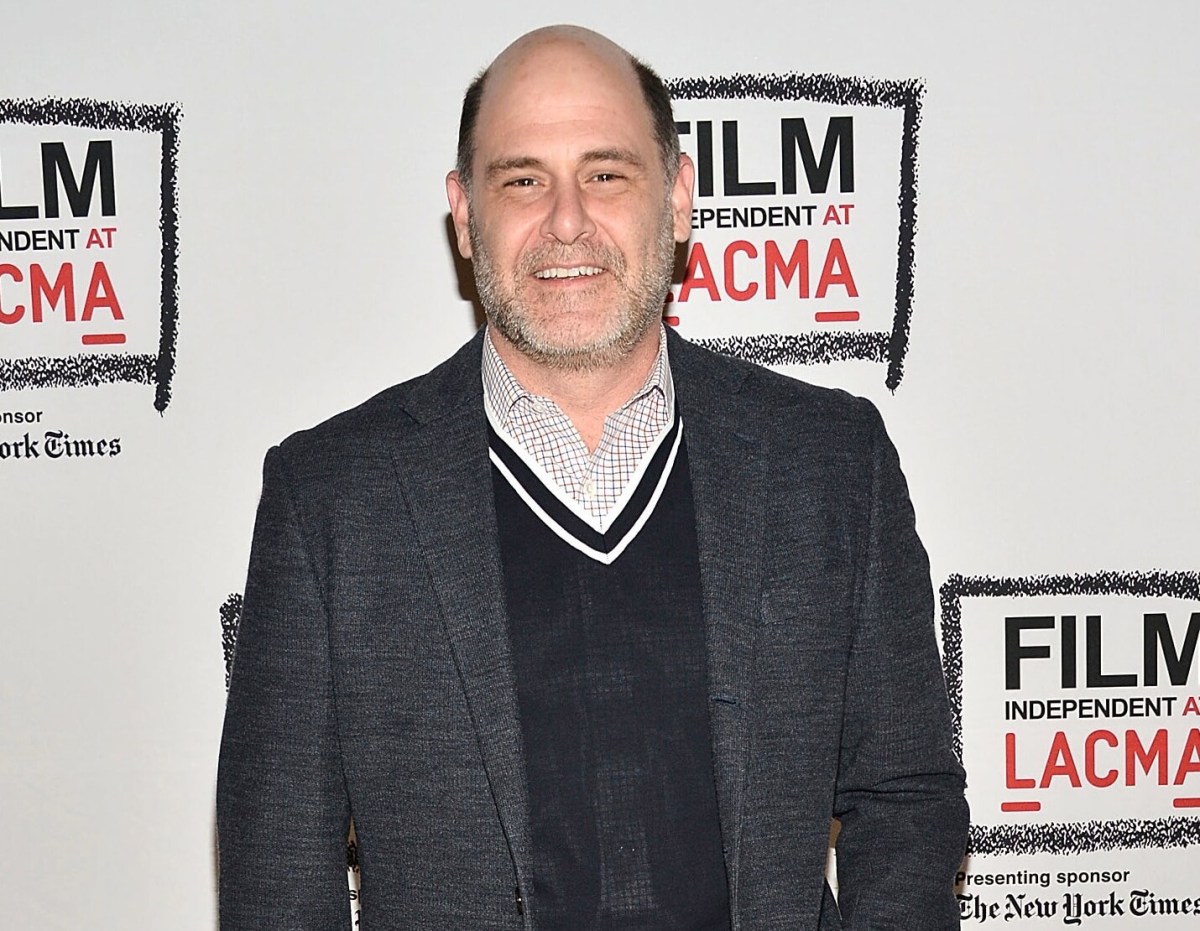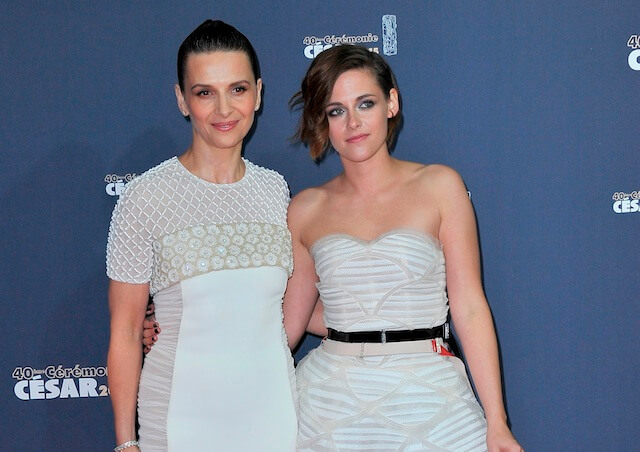While the much anticipated finale of “Mad Men” last night left the world without one of its favorite television shows, creator Matthew Weiner has been living without his baby for much longer. Metro caught up with Weiner when he visited our offices last month.“Mad Men” finished shooting last summer, but creator Matthew Weiner was still not totally used to it being over. Still, he will have to talk about it for a long time. Even now do you still get ideas for the show?
Yes. I’ve had ideas recently. I caught myself. I ran into a situation I thought could be in the show. That’s never going to happen again. I always have a piece of paper in my pocket or I call myself on the phone. I’ve learned to take those passing thoughts very seriously. It’s not as delusional as it sounds. But I did stop and not write it down. It was like the show was a phantom limb. Could you use the idea for some other project?
I didn’t write it down, so maybe I won’t be able to. Maybe. Perhaps I should take it more seriously. But that one in particular I thought didn’t have any other use. I went to the LBJ library in Austin after I wrapped the show. And I can tell you that going through the museum was really a pleasure for me. I know that if I had done it while the show was on it would have been complete anxiety. “How come I didn’t know about that?” “That would have been an amazing thing to do!” But instead I was just like, “You know what? He was a great president, he’s fascinating.” Are there forgotten or neglected events or historical moments you were really proud to have included?
I like things people have forgotten about. Like the computer coming into peoples’ lives. People were like, “Oh, [in the first episode with the giant computer in season seven] that’s a ‘2001’ reference.” It’s not. It actually happened. And “2001” was already out. “2001” presaged it. Arthur C. Clarke was talking about it and Kubrick was interested in that — what our relationship is going to be with these machines. By the time [a computer] came to the agency — as Don says, “It’s not symbolic, it’s quite literal.” It took over the lunch room. [Laughs] It replaced human beings. We have such a non-stop love affair with our cellphones that we forget there was a time when this was perceived as a threat. The way the last episode of the first half of the last season ends is really striking: Don imagines seeing Bert Cooper’s ghost doing a musical number to “The Best Things in Life are Free.” The combination of lighter-than-air old-timey entertainment and Don’s fear of the future offers a very strange mixed feeling. It’s supposed to be a mixed feeling. I knew we were coming into what I call “the mid-season finale,” because if you see the first episode of the second half of this season you see these 14 episodes are one season. For better or worse. I knew we were going to get [the moon landing] on the calendar, for the purposes of irony, which is the only reason we include anything historic. I wanted the climax of the first half to be Don’s success story: not about him becoming rich but about him overcoming his self-destructive tendencies and just doing the work, and repairing his relationship with Peggy and Roger stepping into a leadership role — all of it climaxing with the landing on the moon. The message of this material climax, of them being showered in money, would be counteracted by the loss of a human being. So I knew all this, and I’m driving in my car, listening to old time radio [“Radio Classics”] on Sirius. On “The Bickersons,” I hear Frances Langford sing this song. And the first line is “The moon belongs to everyone.” All I thought was “I’m going to use this song and, oh my god, Robert can sing it.” Because he would know it, his character would know it. It would have this Depression-era quality to it, and the idea of a Depression-era song being sung when a rocket lands on the moon — that was all great for me. But what I really wanted was a simple message: Putting a flag on the moon is this achievement, but it’s so futile. A thousand years from now someone’s going to laugh at that idea. In fact people did that immediately. I wanted to get the message across that in the face of this tremendous windfall and success on so many levels, life is still more important. And having Cooper drop out of character to do that to me was also a great chance to use something I could never use otherwise, unless it was s fantasy, which is the incredible Robert Morse, one of the legends whose day job just happened to be being one of the great song and dance men of the 20the century sing and dance. So why not? And you can feel it. You can feel not only how great [Morse] is, but also Jon Hamm’s reaction to the fact that our lives are more substantial than our pocketbooks. Looking back even further, when you originally had the idea for “Mad Men” ages ago, one notion was to turn it into a movie.
The movie was abandoned because it didn’t’ work. [Laughs] I can tell you the reason why nobody wanted to do it [as a TV show, initially] was because there were so many things about it that did not work. And I totally respect them for that. I never would want the job of having to pick what’s going to be made. I do wonder why they don’t take more chances. I am lucky that a place like AMC, with nothing to lose, was the kind of place that would do this. But the period and the smoking and the main character cheating on his wife in the pilot — it has so many noncommercial elements to it, most important at the time being the belief that no one outside the United States would want to watch a show about this American. It turned out that was not true as well. All that said, I understand why it didn’t look good on paper. As a movie I was actually making the script his whole life leading up to the millennium. He was very different from Don. I was doing this Garp-like picaresque story, where every twist and turn is filled with irony, which became more realistic when I came to use it as Don Draper’s backstory. “Mad Men” is often read in comparison to the show you were working on right before it, which was “The Sopranos.” But how much does it tie in with the sitcoms — like “Becker” — you worked on prior to that? I have never really understood genre in any way, and the show doesn’t have one. I know that it’s a drama. I also know the bar for funny is a lot lower in a drama. When you’re dealing with heavy stuff, a very small joke can get a very big laugh, because it’s just a relief and a surprise. But I’ve definitely brought a lot of the techniques and my way of viewing the world to the show, and they are sitcom techniques and sitcom ways of doing scenes. Structuring a joke of Don talking about Roger’s diary with Peggy in “The Suitcase” — “Ida was a hellcat? Cooper has no balls?, Roger’s writing a book?” That that would be the one thing that was the most unbelievable, the most outrageous — that kind of structure in a joke is something I learned from being around very experienced, funny writers, David Chase being one of them. I have never spoken of sitcoms in disparaging ways. When I happen to stumble upon a “Friends” episode or a “Seinfeld” episode, I am always filled with the delight of truly funny, character-driven pieces that totally stands outside its period. It’s not a trip down memory lane. I think, like “Lucy,” they will be there for a very long time, and they should be. Being funny, I hate to say it, is way more impressive and way harder to do than being dramatic. On the other hand, every single person I can find who can do both I have hired. Because that’s what I like in entertainment.
Matthew Weiner is struggling just like you to let go of ‘Mad Men’

Getty Images
Follow Matt Prigge on Twitter @mattprigge
























